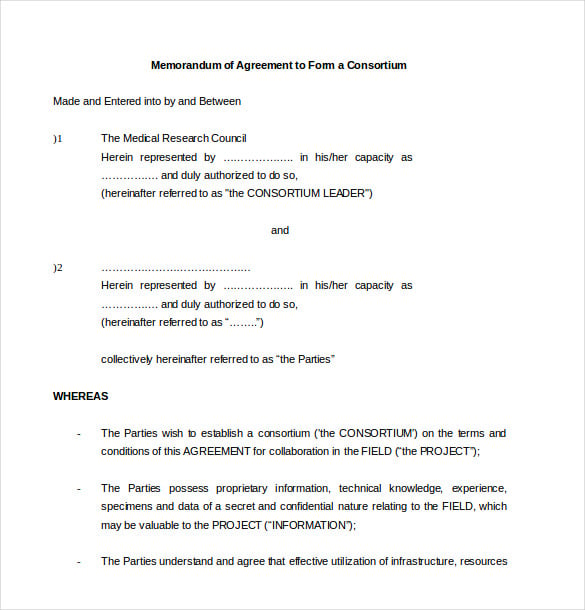
But, where the parties are at the definitive stage of the understanding, an agreement is proper, except all the conditions of the contract are stated and it lacks any form of ambiguity, else, it will fail. Where the parties are at the preliminary stages of the understanding and seek to clear all ambiguities.An MOU can be binding where all the conditions of a valid contract is existent, i.e., offer, acceptance, consideration, intention to be bound by the terms of the contract.Situations where entering into a contract is not in sight.Charitable Works: Where a party wants to help some set of indigents or some persons with a gift of money or whatever money’s worth, the party can prepare an MOU, but, it is better to create a deed of gift.INSTANCES WHERE AN MOU CAN SUFFICE AND BE BINDING. The doctrine of estoppel explains that where the parties have signaled an intention to do a thing, they are heretofore estopped from doing otherwise.ĬAN A PARTY NEGOTIATE WITH A THIRD PARTY ON THE SUBJECT MATTER?Ī party to an MOU can absolutely negotiate with a third party on the subject matter, because there is no legal contract restraining the party from doing so. Should the binding effect of an MOU be brought before the court, the courts will find that commitment has been made, but may not enforce it.Īlso, the MOU, but for the principle of estoppel, would be a mere moral obligation on the party that executes same but not a legal duty. Though, ignorantia juris non excusat, that is, ignorance of the law does not excuse, but where there is a show of intention which can be manifestly seen in the arrangement, and where either of the parties have performed his duty sequel to the understanding, then the court will look into the intention and may rule on the understanding in favour of the party that has performed his duty. The Court of Appeal of Nigeria held in HIGH PERFORMANCE DISTRIBUTION LTD V SAMSUNG ELECTRONICS COMPANY & ANOR , that, an MOU is a prelude to a contract, or letter of intent for parties to enter into a formal contract spelling out the basis for such relationship.Īn MOU is not bad and can still be enforced at the extent it can by law. It is at best a show of intention to enter into a legally binding agreement. It is to fix in memory what the parties want to achieve in the future contract, in fact, it need not state all the terms in it. The court held in ORAKA v ORAKA, that an MOU is not a contract or an agreement … but rather an intention to enter into a contract later. FCDA held that, an MOU or a letter of intent sets down in writing what the parties want to form the basis of a formal contract between them. The Supreme Court in BPS CONSTRUCTION & ENGINEERING CO. However, where situations demands that the court should, it will adjudicate on the subject matter before it and with reference to the agreement between the parties. It has been established and a trite law that courts will not interfere in agreements between parties. An MOU is more like a gentleman agreement. This is more acceptable even in the courts of law. A legally binding agreement, on the other hand, simply, is an arrangement between the parties that is documented, prepared by a legal practitioner, most advisably, a solicitor, evincing the terms of the understanding and showing the intentions of the parties to be bound by the terms of the agreement, as well as the penalties for its breach. The intention of entering into a legally binding contractįrom the above, it has been established that an MOU is a mild agreement between the parties in a transaction it speaks of a later agreement.Parties’ clause: It has to show the details of the parties involved.Black’s Law dictionary defines a letter of intent to be a written statement detailing the preliminary understanding of parties who plan to enter into a contract or some other agreement. In this context, an MOU, as it is fondly called, is a less formal agreement between parties in a transaction that shows an intention to enter into a legally binding agreement.

In all transactions, it is expedient that there must be an agreement to cement an already agreed arrangement, irrespective of the nature of the transaction. Memorandum of Understanding (MOU) from its direct translation speaks of a parole agreement between the parties involved. The Legal Status of a Memorandum of Understanding5592 views


 0 kommentar(er)
0 kommentar(er)
